View all recordings of works by this composer
Alleluia, op.25 (3)Barcarolle, op.65 no.6 (1)
Benedictus, op.54 (trans. Vianna da Motta for two pianos) (1)
Benedictus, op.54 (2)
Bombardo-Carillon (1)
Capriccio alla soldatesca, op.50 no.1 (3)
Cello Sonata, op.47 (4)
Chapeau bas! (2)
Concerto da camera in A minor, op.10 no.1 (5)
Concerto da camera in C sharp minor, op.10 no.2 (6)
Concerto da camera in C sharp minor, op.10 no.3 (4)
Concerto for solo piano, op.39 nos 8-10 (2)
Desir (2)
Deuxieme recueil d'impromptus, op.32 (2)
Etude alla barbaro (2)
Etude from the Encyclopedie du pianiste compositeur (1)
Etudes (12) in the major keys, op.35 (selection) (1)
Etudes (12) in the major keys, op.35 (4)
Etudes (12) in the minor keys, op.39 (13)
Etudes de bravoure (3) (Scherzi), op.16 no.1 (2)
Fantaisie a quatre mains sur Don Juan, op.26 (1)
Fantasticheria (1)
Finale, op.17 (1)
Grand Duo Concertant in F sharp minor, op.21 (3)
Grand Preludes, op.66: Selection of 9 trans. Vianna da Motta for piano four hands (1)
Grande Sonate 'Les quatre ages', op.33 (5)
Grandes etudes (3) pour les mains separees et reunies, op.76 (selection) (1)
Grandes etudes (3) pour les mains separees et reunies, op.76 (2)
Impromptu on Luther's 'Un fort rempart est notre Dieu, op.69 (3)
Jean qui pleure et Jean qui rit, due fughe da camera (1)
Le Chemin de fer, op.27 (4)
Le Grillon (Nocturne no.4), op.60bis (1)
Le Tambour bat aux champs, op.50 no.2 (2)
Les Mois, op.74 (2)
Les regrets de la Nonette (1)
Marche funebre, op.26 (2)
Marches (3), op.40 (1)
Marches (3) quasi da cavalleria, op.37 (1)
Marche triomphale, op.27 (2)
Menuets (3), op.51 (1)
Minuetto alla tedesca, op.46 (1)
Morceaux (3) dans la genre Pathetique, op.15 (3)
Motifs (48), 'esquisses' (sketches) for piano, op.63 (selection) (1)
Nocturne in B major, op.22 (3)
Nocturnes (2), op.57 (2)
Petit conte (1)
Petites Fantasies (3), op.41 (2)
Petites Pieces (2), op.60 (3)
Petits Preludes sur les huit gammes du plainchant (2)
Piano Trio in G minor, op.30 (3)
Pieces (11) dans le style religieux et 1 transcription du Messie de Haendel, op.72 (1)
Pour monsieur Gurkhaus (1)
Preludes (25) in all major and minor keys, op.31 (selection) (1)
Preludes (25) in all major and minor keys, op.31 (11)
Prieres (13) for organ, op.64: Selection of 8 trans. Vianna da Motta for piano solo (1)
Prieres (13) for organ, op.64 (3)
Quasi-Caccia, op.53 (1)
Recueils de chants (6) Book 1, op.38/1 (4)
Recueils de chants (6) Book 2, op.38/2 (1)
Recueils de chants (6) Book 4, op.67 (2)
Recueils de chants (6) Book 5, op.70 (2)
Rondeau chromatique, op.12 (1)
Saltarelle, Op.23 (arr. Roma) (1)
Saltarelle, op.47a (1)
Salut, cendre du pauvre!, op.45 (3)
Sonate de Concert in E major, op.47 (3)
Sonatine, op.61 (1)
Super flumina Babylonis: paraphrase, op.52 (4)
Symphony for solo piano, op.39 nos 4-7 (4)
Toccatina, op.75 (3)
Une fusee: Introduction et Impromptu, op.55 (2)
Variations on a theme from Steibelt's Orage Concerto, op.1 (1)
Variations quasi-fantaisie sur une barcarolle napolitaine, op.16 no.6 (2)
Variations sur 'Ah! segnata e la mia morte', op.16 no.4 (2)
Variations sur un theme de Bellini, 'La tremenda ultrice spada', op.16 no.5 (2)

Charles-Valentin Alkan (30 November 1813 – 29 March 1888) was a French composer and pianist. At the height of his fame in the 1830s and 1840s he was, alongside his friends and colleagues Frédéric Chopin and Franz Liszt, among the leading virtuoso pianists in Paris, a city in which he spent virtually his entire life.
Alkan earned many awards at the Conservatoire de Paris, which he entered before he was six. His career in the salons and concert halls of Paris was marked by his occasional long withdrawals from public performance, for personal reasons. Although he had a wide circle of friends and acquaintances in the Parisian artistic world, including Eugène Delacroix and George Sand, from 1848 he began to adopt a reclusive life style, while continuing with his compositions, virtually all of which are for the keyboard. During this period he published, among other works, his collections of large-scale studies in all the major keys (Op. 35) and all the minor keys (Op. 39). The latter includes his Symphony for Solo Piano (Op. 39, nos. 4–7) and Concerto for Solo Piano (Op. 39, nos. 8–10), which are often considered among his masterpieces and are of great musical and technical complexity. Alkan emerged from self-imposed retirement in the 1870s to give a series of recitals that were attended by a new generation of French musicians.
* This text is available under the Creative Commons Attribution-ShareAlike
License
* Wikipedia® is a registered trademark of the Wikimedia Foundation, Inc., a non-profit organization.
* Original page
Recent Alkan releases

Mendelssohn & Alkan - Lieder ohne Worte
£11.78
(Sony)
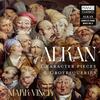
Alkan - Character Pieces & Grotesqueries
£14.51
(Piano Classics)

Nathanael Gouin: Caprices
£13.60
(Mirare)
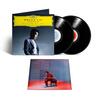
Waves: Music by Rameau, Ravel, Alkan (Vinyl LP)
£42.72
(Deutsche Grammophon)

Waves: Music by Rameau, Ravel, Alkan
£13.60
(Deutsche Grammophon)

Rarities of Piano Music at Schloss vor Husum: 2022 Festival
£12.69
(Danacord)
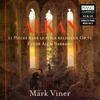
Alkan - 11 Pieces dans le style religieux op.72, Etude Alla-Barbaro
£14.51
(Piano Classics)
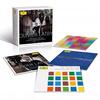
Olivier Latry: Complete Recordings on DG (CD + Blu-ray Audio)
£51.82
(Deutsche Grammophon)
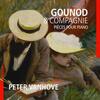
Gounod & Compagnie: Pieces for Piano
£24.52
(Pavane)
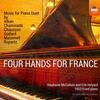
Four Hands for France: Music for Piano Duet
£12.69
(Toccata Classics)

Alkan - Piano Works
£13.88
(Muso)
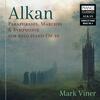
Alkan - Paraphrases, Marches & Symphonie
£14.51
(Piano Classics)
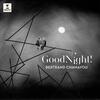
Bertrand Chamayou: Good Night (Vinyl LP)
£20.07
(Erato)
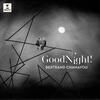
Bertrand Chamayou: Good Night
£12.69
(Erato)
 FREE UK SHIPPING OVER £30!
FREE UK SHIPPING OVER £30!